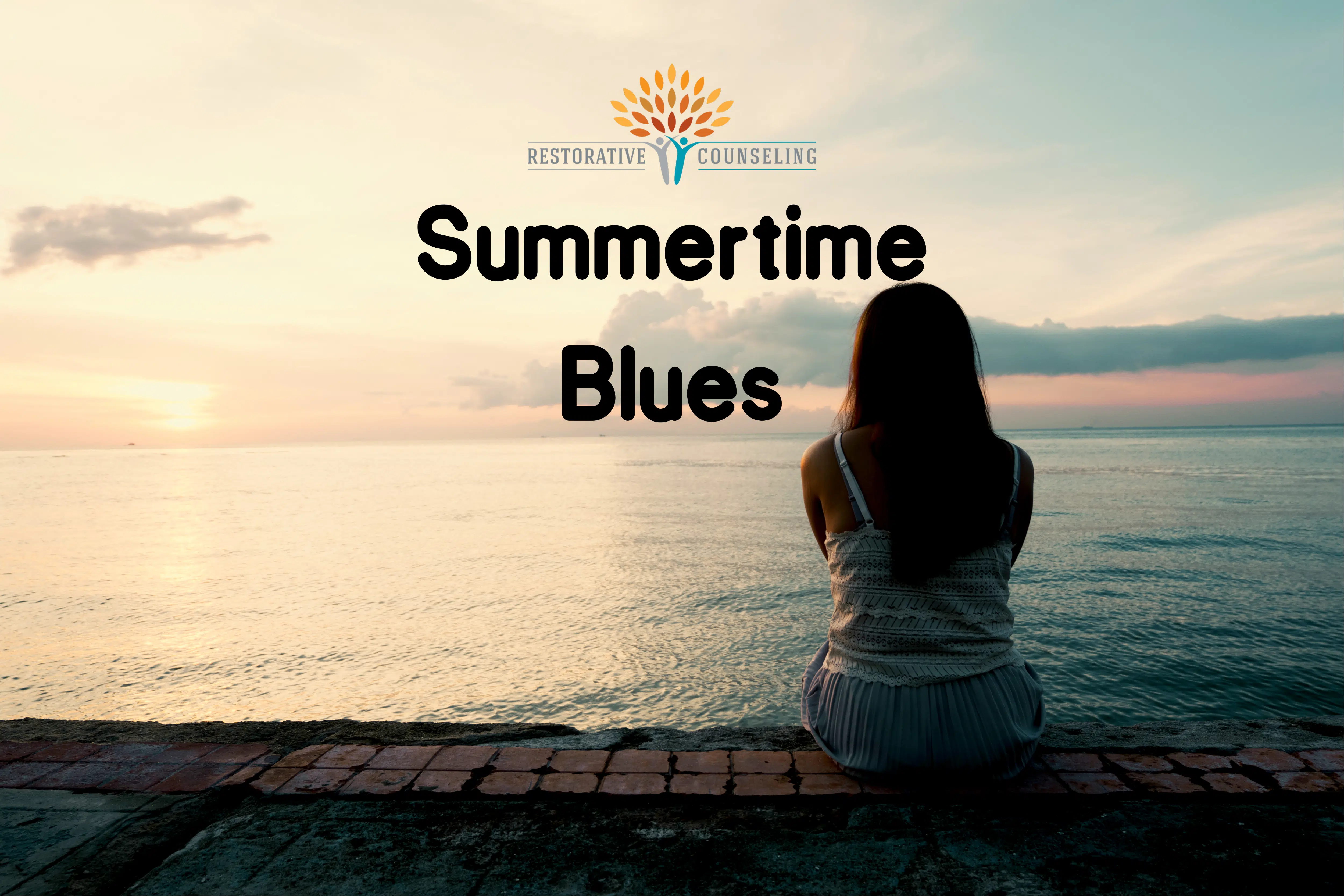Written by Stephanie Grunewald, PhD
The sun is shining and summer is here! You’re feeling great…or are you?
Many people expect that with Summer comes better moods. However, that is not the case for everyone. For some, the summer months can feel daunting. Summertime blues are real and you are not alone!
The concept was popularized decades ago in Eddie Cochran’s “Summertime Blues” and more recently with Lana Del Rey’s “Summertime Sadness”.
What causes Summertime Blues?
There are many factors that might impact one’s mood in the summer months:
- Body image insecurities – the pressure to be fit is constant, but during the summertime people may avoid enjoyable activities, such as going to the beach, playing in the park and other outdoor activities due to body insecurities. Not only does this body-shaming lead to decreased self-esteem, it may also lead to increased loneliness and isolation.
- Heat intolerance – People can find the high temperatures during summer to be oppressive. It can make you feel more irritable and agitated as a result of being uncomfortable. Some individuals feel more affected by the heat than others. This can cause people to stay indoors, which also may lead to increased feelings of isolation.
- Disruption of routine – perhaps the kids are home from school or you are on summer break yourself. Deviations from routines can negatively impact mental and physical health.
- Changes in sleep schedule – the longer days and shorter nights cause disrupted sleep for many people. For those who are able to sleep, they may be feeling more moody, groggy, or “out of it”. For others, the increased exposure to light means tossing and turning or no sleep at all.
- Financial stress – with all there is to do, some might be feeling more financially strained. Vacations, summer sports, camping, concerts, etc. can lead to increased expenses and financial worries.
There are many factors that may cause someone to feel sad or blue, but this is not the same as being depressed. Let’s explore the difference.
Get support for handling summertime blues
Reach Out
How to know if it is Summertime Sadness or Summertime Depression.
It is important to note that Summertime Blues may be a more serious problem. Symptoms of major depressive disorder include depressed mood, hopelessness, feelings of worthlessness and loss of interest or pleasure. You may have heard of Seasonal Affective Disorder (SAD) (now called Major Depressive Disorder with a Seasonal Pattern) that occurs during the dreary winter months. However, fewer people are familiar with Reverse Seasonal Affective Disorder.
Like winter-onset Seasonal Affective Disorder or Reverse Seasonal Affective Disorder returns every year at about the same time (and disappears on schedule). Aside from the regularity of the depression coming and going, there are few similarities.
Contrasted to winter onset, summertime onset symptoms include:
- Insomnia
- Loss of appetite and/or weight loss
- Irritability
- Agitation
- Anxiety
- Isolation
- Physical symptoms, such as headaches
What can you do to boost your mood?
Here are a few tips and ideas to help you cope more effectively or rid yourself of symptoms altogether:
- Check in with yourself – Don’t be so hard on yourself! It is rarely helpful to compare ourselves to others and constantly putting ourselves down. This often results in increased isolation. Instead of comparing yourself to others, get in touch with what is most important for you. What are some barriers you may need to overcome? Focus on how you can break the summertime blues.
- Establish a routine – Try to maintain consistent sleeping, eating, and exercise routines throughout the year. It does not have to be exact but the more structured you are, the more in control you can feel about what is happening around you.
- Eat well – Eat a healthy diet with lots of delicious summer fruits, vegetables, and protein. Do not succumb to strict dieting or restrictive food intake.
- Exercise – Keep up with your exercise, but don’t overdo it! Exercise is important for mood control but it is just as important to be in tune with your body’s limitations. Be sure to stick to a slow and steady pace or seek the advice of a trained professional to avoid injury. You might be able to get outside more rather than having your workouts strictly in the gym. If it is too hot outside, you may want to find ways to exercise early in the morning or in the evening when it is cooler outside.
- Get adequate rest and sleep – Make sure to get enough sleep! Doing so helps ensure your melatonin levels stay somewhat stabilized despite the longer hours spent in daylight during the summer months.
- Plan ahead – It is important to make plans but be conscious when doing so. Having something to look forward to is great, but be sure to understand your budget and plan accordingly. You may have to miss that great summer concert to join the summer league you have been looking forward to. Prioritize your wish-list and challenge yourself to find low-budget ways of having fun.
In addition to these helpful tips, counseling can help those who may be experiencing “the blues” or depression. We are here and ready to help you uncover your best self! Contact us now to schedule an appointment with Restorative Counseling.

Hello! I’m Stephanie.
I help adults identify strengths and learn strategies to manage stress, deal with life transitions, and overcome anxiety. Read more about me.
Follow Restorative Counseling
Sign up for our newsletter

